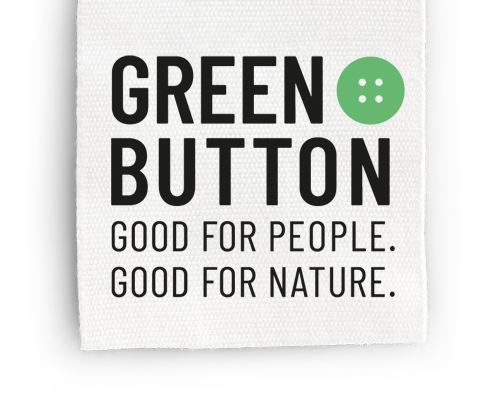3 Questions for
Michael Windfuhr | German Institute for Human Rights
Michael Windfuhr studied political science, German studies, geography and philosophy in Heidelberg and has been deputy director of the German Institute for Human Rights in Berlin since 2011. He also chaired the advisory board of experts for the Green Button and supported with his expertise in the further development of the certification label.

Today is Human Rights Day. Unfortunately, human rights violations are still commonplace. How do you assess the situation in global textile supply chains?
The textile industry is one of the economic sectors that is particularly globalized: Over 90% of all textiles and clothing in Germany is purchased internationally. Many production sites are located in countries that themselves care too little about the observance of human rights in their economy, i.e. about the monitoring of factories, about occupational health and safety standards, about building safety, etc. The right to organize in trade unions is often not granted. Long working hours, very low wages and health hazards therefore characterize the sector. The textile sector also employs a particularly large number of women who are regularly subjected to harassment and assault in the workplace. Child labor can occur in supplier factories.
For years, civil society initiatives, including those of the government and the business community, have been campaigning for improvements in the textile sector. Individual companies have improved a lot in the meantime, but in the sector as a whole, the task still remains very large.
Textile processing companies and clothing retailers have a duty of care to pay attention to human rights standards in production - this basic idea is an important innovation of recent years. It goes back to the United Nations Guiding Principles on Business and Human Rights, which were unanimously adopted by the Human Rights Council in 2011. The Guiding Principles, make two things clear: States where the garment industry is located have a human rights obligation to protect those working in the sector from violations. And: Companies that have production there have a responsibility along their supply chains to ensure that they do not contribute to or cause violations of human rights.
Which actors should come together to improve the human rights situation in textile supply chains and how can companies take responsibility?
The main responsibility for improving human rights along textile supply chains lies with the states in the manufacturing countries. They must implement the human rights standards they have signed themselves. Some do not want to do this because they themselves profit from the conditions. Some do not dare to implement higher standards in the face of tough global competition, fearing that production will migrate to other countries. This makes it more important if there is a demand for products that are produced in compliance with social, ecological and human rights standards. The Green Button offers consumers the opportunity to show this demand. Apparel retailers themselves can use their buying power to do better along supply chains by using appropriate certification labels. In addition, a German and a European supply chain law can make it clear that compliance with standards is also economically more favorable for manufacturing companies in the long run. They can and should get on track because fair manufacturing conditions and human rights due diligence will become the standard in the long term.
The Green Button has been extensively revised. You acted in an advisory capacity as chair of the advisory board. How do you assess the new Green Button 2.0 standard and to what extent do you think it can help to better protect human rights in global supply chains?
The Green Button is intended as a reliable sign of sustainably produced textiles that is subject to government-monitored control. The system carrying the Green Button offers the opportunity to achieve significant progress in the implementation of environmental and social standards in global supply chains. The revision achieved that not only are standards required and verified for the products themselves, but also the companies involved must demonstrate that they are conducting human rights due diligence to address the issues in the sector that are particularly difficult to change. These include, for example, the enforcement of living wages and trade union freedom. The revised Green Button includes extending the label to the deeper supply chain and attempting to approach the issue of living wages. It is important to make it clear to consumers that the Green Button focuses on longer-term processes of change in companies and that individual goals, such as living wages, can only be achieved in the medium and long term.

